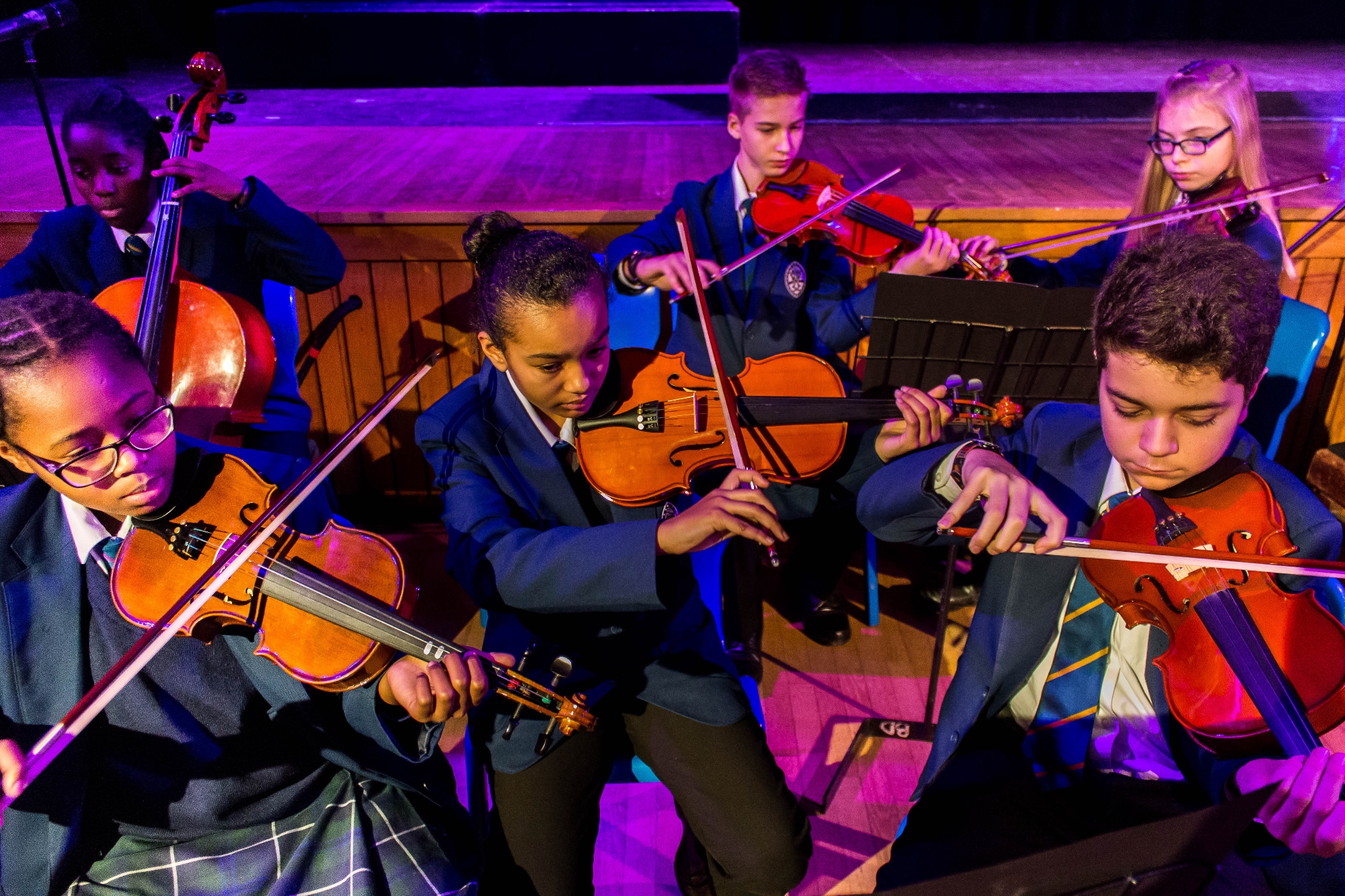Music
The Music Department
The Bishop Douglass Music Department gives students the opportunity to create and flourish in a supportive musical environment.

Underpinning all music lessons at Bishop Douglass is a focus on performing, composing and listening to music, leading to a deep and transferable understanding of the values of music. We seek to engage and inspire pupils to develop a love of music and their talent as a musician. Pupils will use their voices, instruments and technology to explore a range of musical contexts, styles and influences. As a result of their studies, pupils will perform fluently, compose appropriately and learn to reflect critically on the music they hear around them.
Music through the Key Stages
The curriculum is sequenced so that performing, composing and listening receive equal amounts of time. By the end of KS3, pupils will be expected to know, apply and understand the matters, skills and processes specified in the programme of study. Year-on-year, the curriculum allows students to improve their skills and allow them to access more complex material.
At KS3, students explore a wide range of musical styles and understand how each music style can be unique yet connected to others. Essential artists, features and influences are shared with students to provide them with a well-rounded understanding of each style. Students also develop a rich understanding of how particular music is constructed and expressed through their practical music-making. Students perform using a variety of instruments, such as keyboards, ukuleles, djembes and singing. As a result, students gain an intellectual curiosity in music and are encouraged to create their own.
Topics covered in Year 7 include the Classical era, Film Music and Reggae.
Topics covered in Year 8 include Musical Theatre, Jazz and Samba.
Topics covered in Year 9 include Electronic Dance Music, Minimalism and British Folk.
At KS4 the curriculum intends to develop the musical knowledge, understanding and skills learnt in music to ensure pupils form a personal and meaningful relationship with music. Pupils will be encouraged to engage critically and creatively with a wide range of music and musical contexts and react on how music is used in the expression of personal and collective identities. The areas of study provide an appropriate focus for pupils to appraise, develop and demonstrate an in-depth knowledge and understanding of musical elements, musical context and musical language. Performing, pupils will be able to interpret relevant musical elements as appropriate using resources and techniques as appropriate to communicate musical ideas with accuracy and expression and interpretation, including phrasing and dynamics appropriate to the style and mood of the music. Through composition, pupils will learn how to develop musical ideas, including extending and manipulating musical ideas, and compose music that is musically convincing.
Following KS4 pupils will embark on a broad and coherent KS5 course of study that prepares the individual for the world of work or further study. The intent of the curriculum is to provide pupils with the opportunity to study music in an integrated way where the skills of performing, composing and appraising reinforce knowledge and understanding of musical elements, contexts and language. In addition to focus upon the appraising examination, all learners will be assessed in both performing and composing. However, the curriculum allows learners to specialise in either performing or composing by providing specialist options.
Key Stage 3
Students in Year 7 are introduced to the key elements of music. To further understand these elements students participate in regular performance activities, such as, instrumental skills and singing.
In Year 8 students build on the skills they learned in year 7. Students are introduced to different musical styles and cultures, such as, Blues, RAP and World Music.
Throughout Key Stage 3 students also gain experience of using music production and recording software in the Music Department Apple Mac suite.
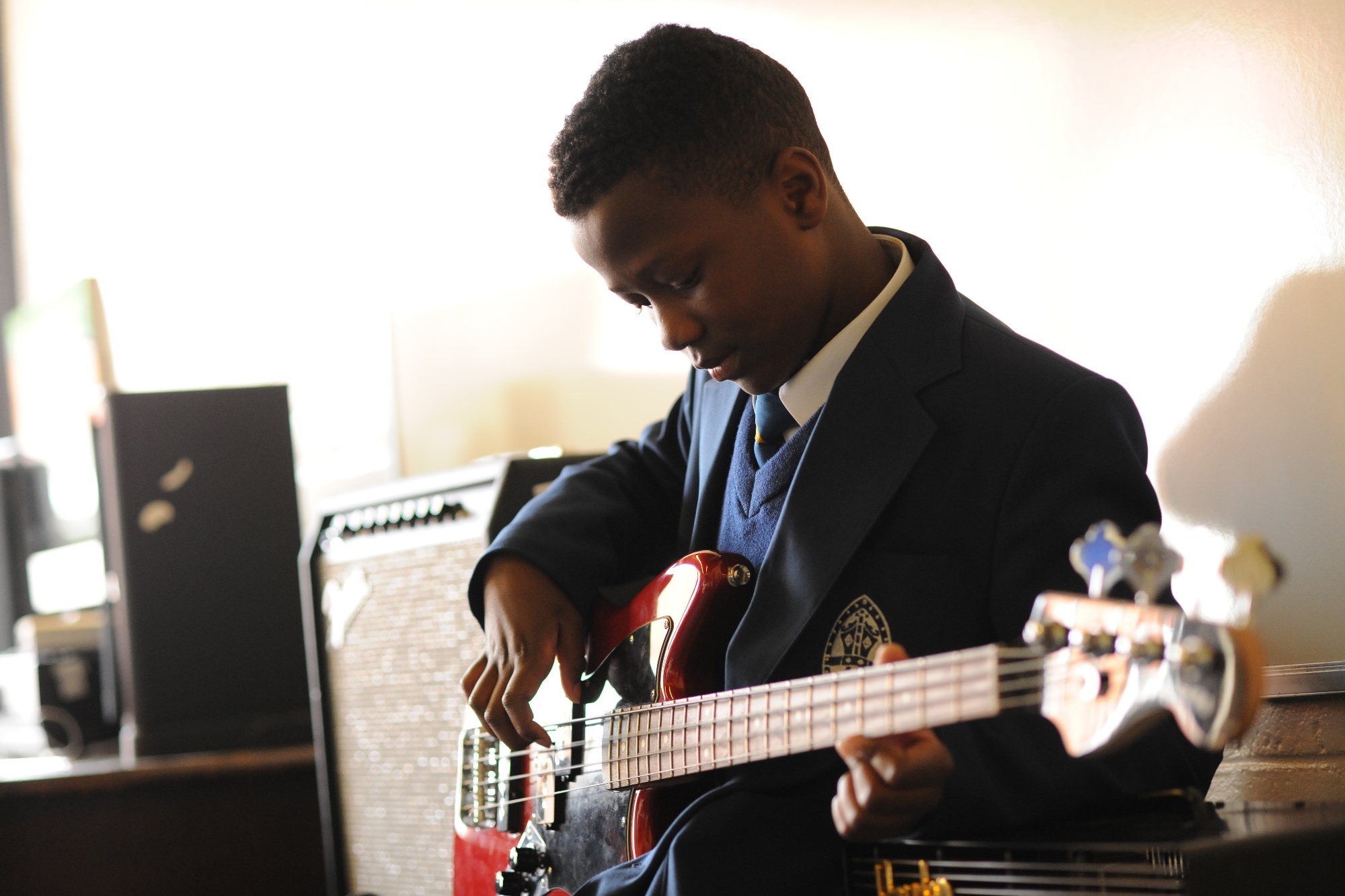
Key Stage 4
Students study the AQA GCSE syllabus which further develops skills gained in Key Stage 3. The course is formed of three key aspects: Listening and Appraisal, Composition and Performance. Students who take GCSE Music are provided with free instrumental tuition.
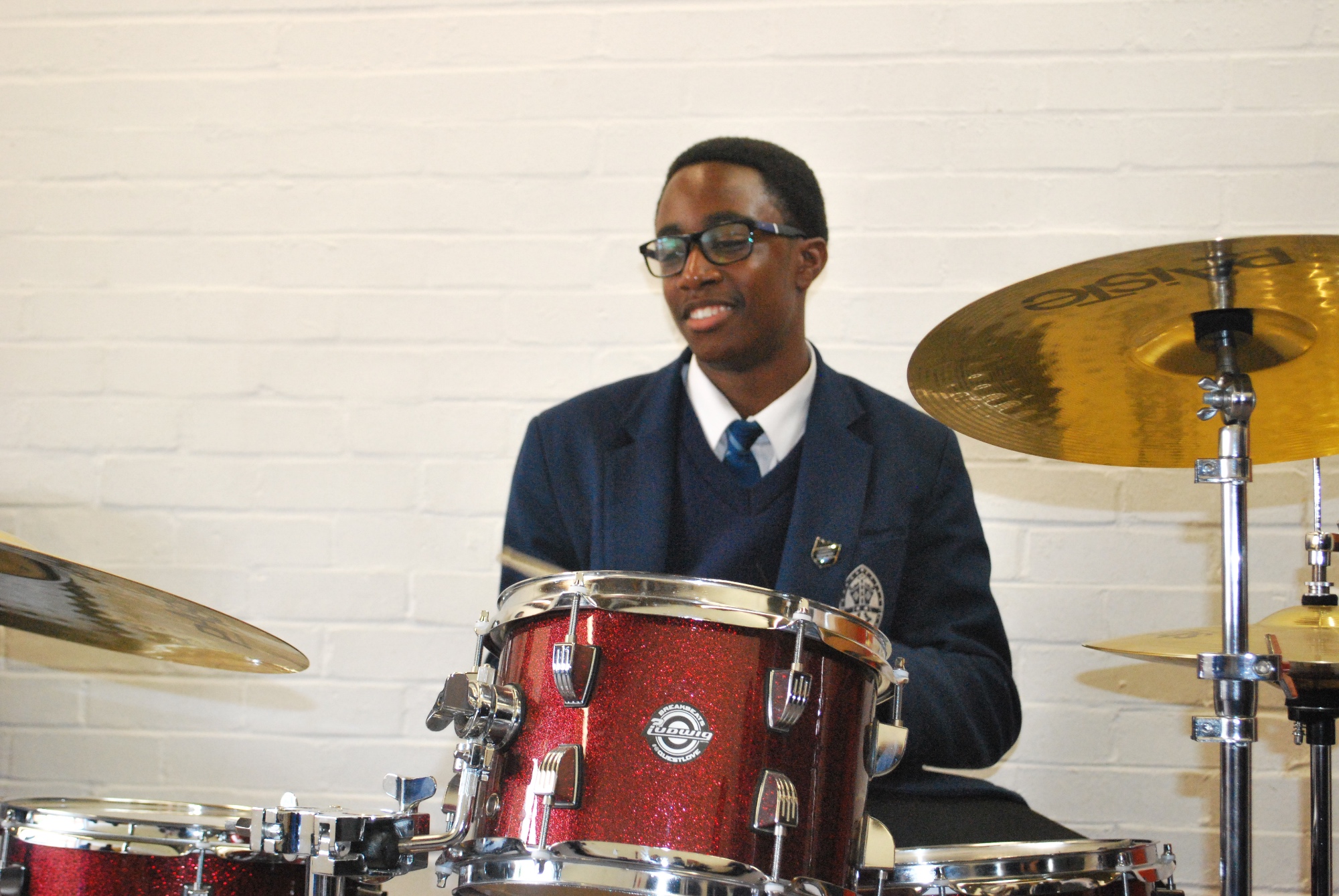
Key Stage 5
Music is offered to Sixth Form pupils through the Level 3 Music BTEC. This course encourages pupils to develop skills appropriate for applying to places of higher education or working in the Music Industry.
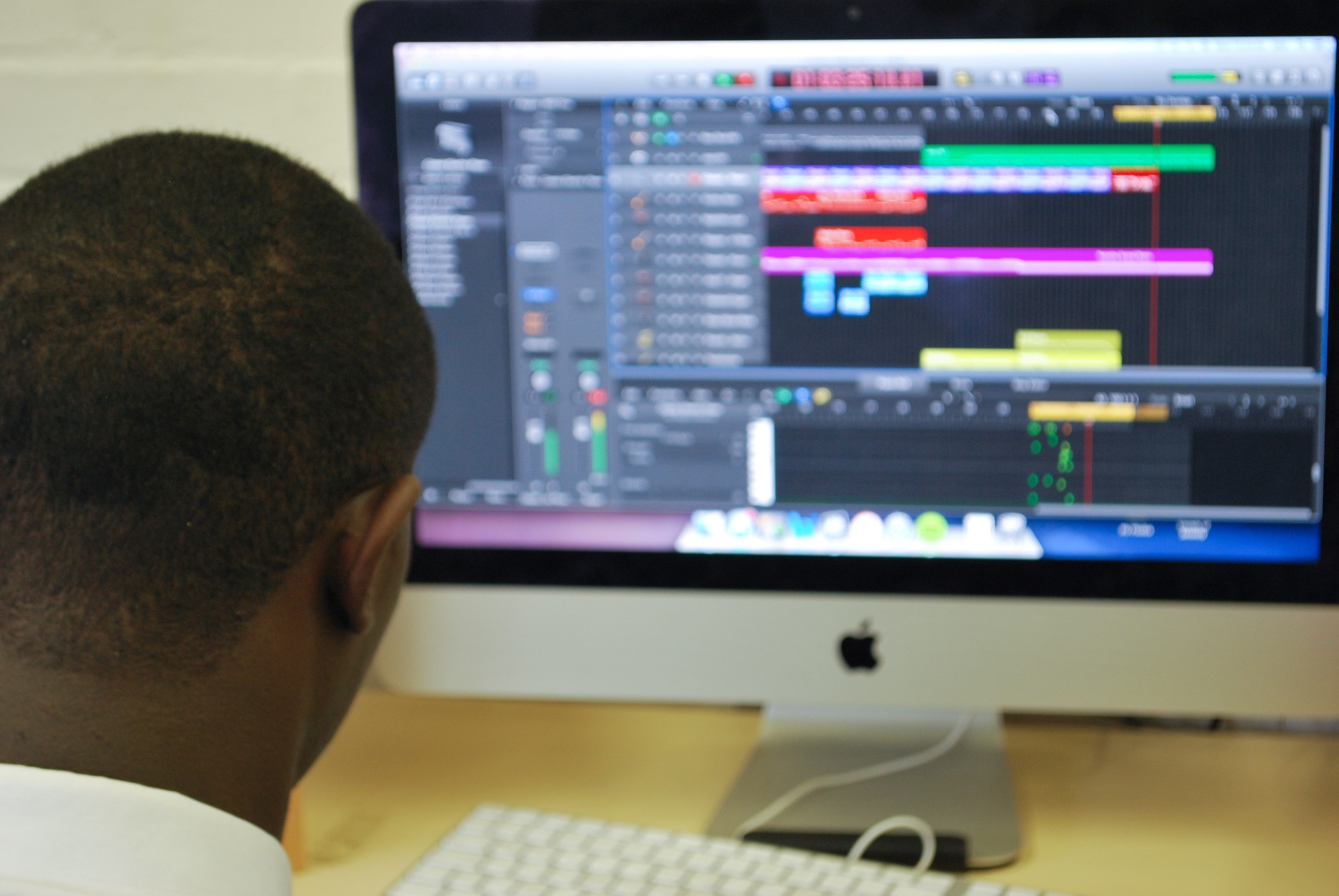
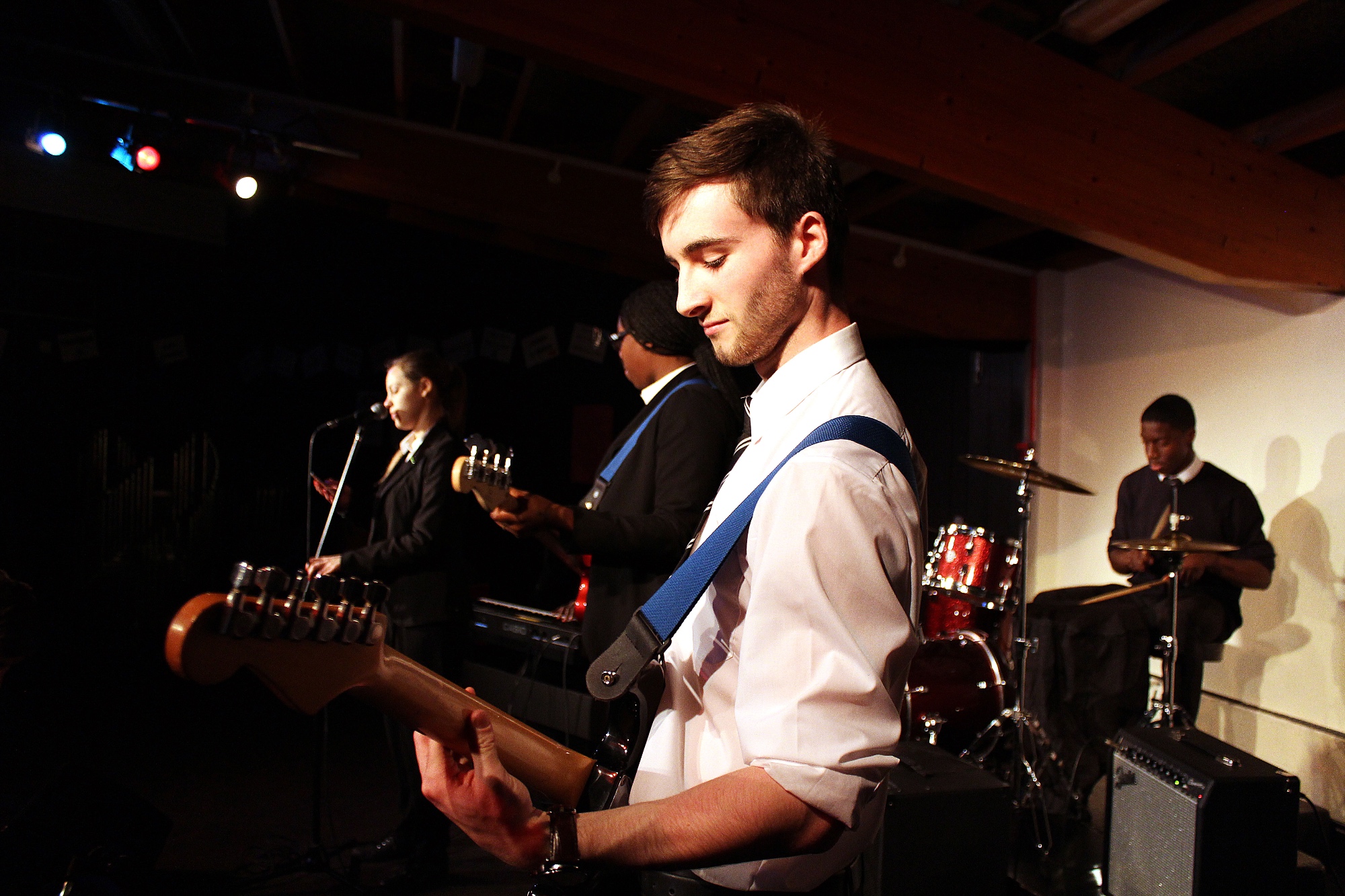
Curriculum Map
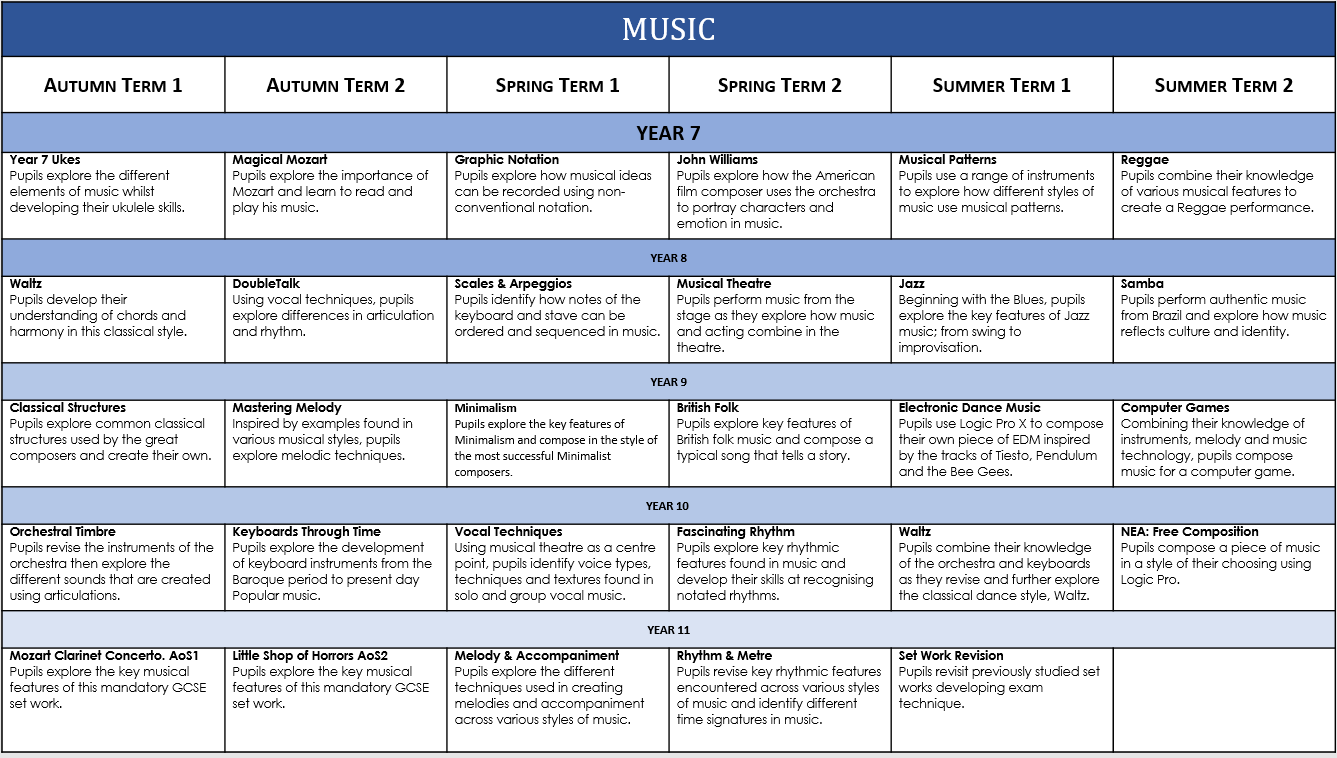
Subsidised Instrumental Lessons
Subsidised instrumental lessons are available for students in Year 7 and 8. The opportunity to choose from a wide selection of instruments is provided by the Music Department. Experienced tutors provide students with the chance to hone their performance skills and participate in numerous performing opportunities both inside and outside of school.
Students are encouraged to enter formal performance exams which can generate UCAS points, as well as, providing valuable experience for students hoping to audition for places in further education.
For more Information on the Bishop Douglass Instrument Lesson Scheme and T&C's, please click here
For Registering, please complete the Form below by 16th June 2023
Instrumental Lessons 23/24
RESPONSES MUST BE RECEIVED BY 16TH JUNE 2023
Please complete the sections below
For further information please contact us via email - schooladmin@bishopdouglass.barnet.sch.uk
